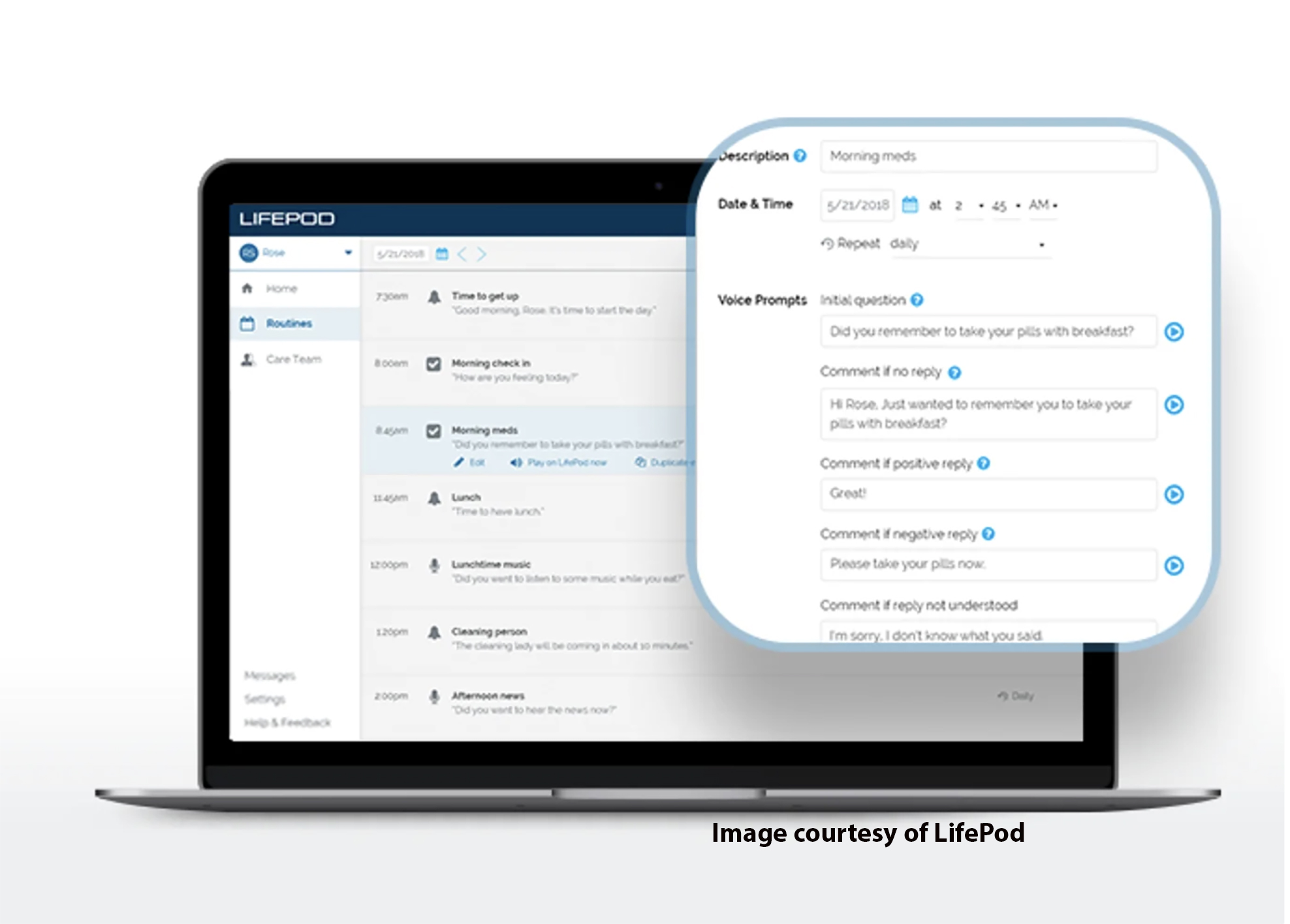Although devices equipped with digital assistants like Alexa or Google Assistant have the potential to help caregivers check in on elderly family members, at present, they usually require a voice command to offer medication reminders or provide other information. But a new smart speaker device, called LifePod, is using technology to give some peace of mind to loved ones who can’t visit a family member with memory or health problems as often as they would like.
According to a recent Boston Globe report, distant caregivers can streamline their communication and program the voice-activated personal assistant to ask specific questions instead of only answering. Caregivers can also program LifePod to offer reminders about medications or checking voice messages and can guide seniors on the steps to listen to their mail. With verbal cues, LifePod can also send a text to a caregiver if the individual responds “no” to a question about having eaten and it can understand if someone says they are not feeling well.
The system, which includes one smart speaker, is priced at $49 per month or $432 each year. And because so many seniors don’t want to wear or forget to put on a panic button, a smart speaker can be a lifesaver. The device appeals to older adults with a clock-radio appearance and along with help features, users can also ask for news and weather reports or play music by genre from the iHeartRadio service.
LifePod is currently working with a Florida-based medical alert system provider, MobileHelp, to add a service that would dispatch emergency help like police or an ambulance with a verbal call for help.
As the technology catches up with the needs of a rapidly growing elderly population, look for more devices that integrate caregiving features such as medication management and virtual healthcare along with grocery ordering services, reminders to exercise or sleep alarms.
Although smart devices can certainly help family care for elderly loved ones with health or memory problems, nothing replaces face-to-face social interaction. But for seniors living alone, especially in rural settings where it may be difficult to find transportation to and from appointments, systems like LifePod can help bridge the care gap.






Add Your Voice
0 Comments
Join the Discussion